If you’re learning English, you might agree that vocabulary is one of the most difficult parts of learning the language. After all, English contains many words, making it difficult to see a clear pattern in meaning or pronunciation.
Moreover, because many words have similar but subtly different meanings, learning English vocabulary is important in understanding and appreciating nuance in the written and spoken language. For example, advanced learners would understand that ‘muse’ has a different meaning to ‘ponder’, and ‘bounce’ a different meaning to ‘hop’ – even though both are variations of more common words (i.e., ‘think’ and ‘jump’ respectively).
Fortunately, as we’ll see in this article, by reading books in general (and dedicated vocabulary builders in particular), you can build your vocabulary quickly and effectively. Then, the vocabulary you learn can be trained and acquired by continuing to read English and by speaking the language as regularly as possible.
Below, you’ll find our ranking in summary. Further down the page, we review each book in more depth:
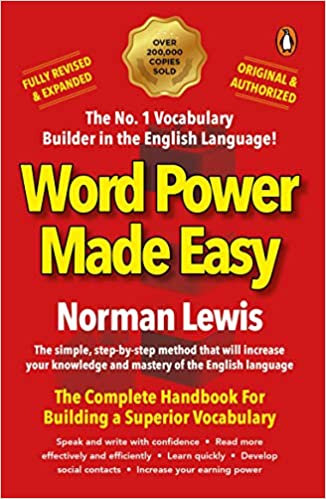
Word Power Made Easy
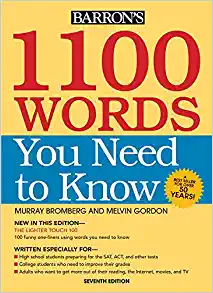
1100 Words You Need to Know
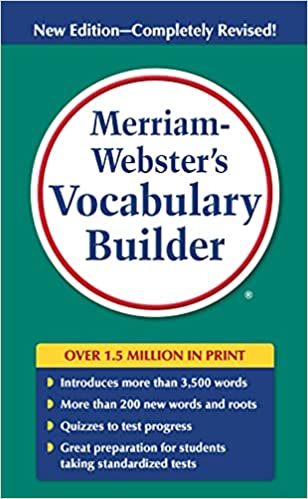
Vocabulary Builder
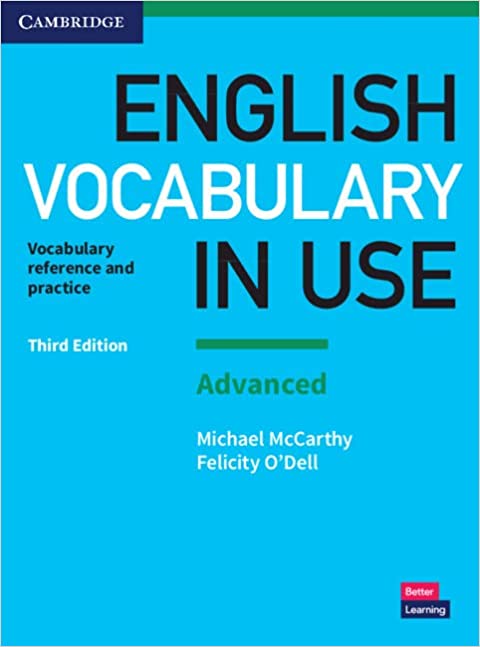
English Vocabulary in Use
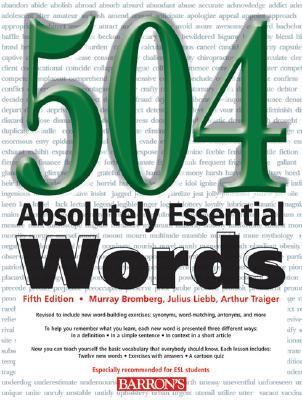
504 Absolutely Essential Words
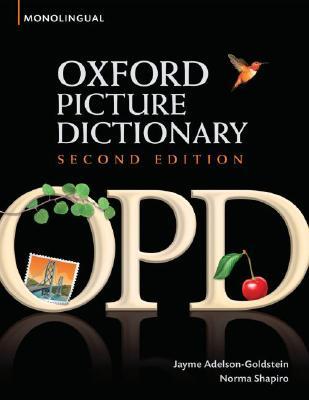
Picture Dictionary
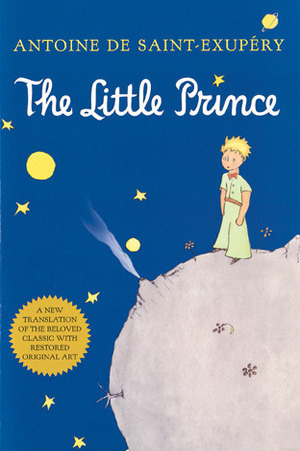
The Little Prince
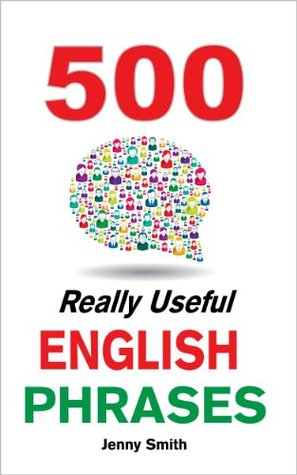
500 Really Useful English Phrases
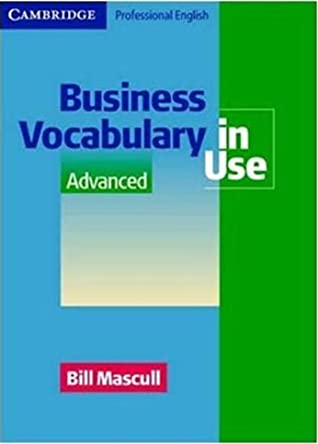
Business Vocabulary in Use
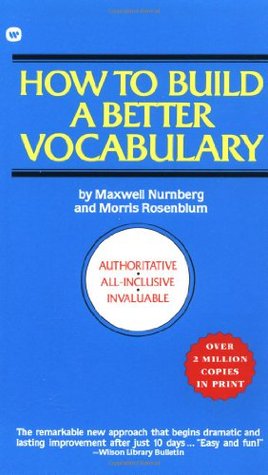
How to Build a Better Vocabulary
Why Vocabulary Is Important
Simply put, vocabulary is important for learning English for the same reason it’s important in any other language: it allows you to express yourself. The larger and more nuanced your vocabulary, the more effectively you can communicate. The more effectively you can communicate, the more you can achieve. It’s as simple as that.
Naturally, having a wide vocabulary helps you establish connections with others and can improve your career opportunities. On the other hand, while having a limited vocabulary doesn’t necessarily mean you’re a bad communicator (language, after all, is far more than words alone), it probably does mean that you’re not quite as good a communicator as you could be.
The good news? The more you read, the more your vocabulary grows. And that’s precisely why books of all kinds play a key role in helping you improve your vocabulary.
That being said, without further ado, let’s get into the list of the best books to learn English vocabulary: —

1. Word Power Made Easy by Norman Lewis
Required Level: Upper-intermediate
Type: Vocabulary builder
Best: Allrounder for learning English vocabulary
Advantages
- Still highly relevant, despite being in print for over 30 years.
- Vocabulary is practical and broad.
Disadvantages
- Not beginner-friendly.
- The font is quite small, especially in the 2014 Anchor edition.
A classic among vocabulary training books, Word Power Made Easy was first published in 1991 to much acclaim by the American wordsmith Norman Lewis and has since become one of the best-selling books about words of all time.
What makes this book impressive is, on the one hand, its depth, and on the other, its accessibility. The book is divided into 19 chapters, each with its own unique theme that introduces dozens of new words in a clear order. Each chapter comes packed with stories, etymologies, explanations, and exercises — all of which support the vocabulary learned in the current chapter and reinforce the vocabulary learned in previous chapters.
We found the book to be witty and well-written too; the English is clear, conversational, and invites the reader to interact with it by speaking aloud, doing exercises, and tracking progress — rather than merely reading it through.
While a great all-rounder, the book does require a fair knowledge of English to start with, and we therefore think it’s best suited if you’re a native English speaker or a learner of at least an upper-intermediate level. Moreover, it’s also nearly 700 pages long, making it a considerable read for many people (although, fortunately, not all pages are filled with text). Overall, we think Word Power Made Easy deserves its acclaim and we rate it as the best all-rounder book to learn English vocabulary.

2. 1100 Words You Need to Know by Murray Bromberg & Melvin Gordon
Required Level: Intermediate
Type: Vocabulary builder
Best: For following a daily program
Advantages
- Progress is fun and easy to track.
- Vocabulary is helpful in daily life.
Disadvantages
- New words aren’t clearly linked with definitions.
- Requires quite a bit of discipline.
Like Word Power Made Easy, Murray Bromberg’s vocabulary builder 1100 Words You Need to Know is a bestseller in the world of vocabulary books. However, unlike the former, its primary aim is to build core English vocabulary via a structured daily program.
To achieve this, the book is divided into 46 chapters, with each containing five days’ worth of learnings and exercises printed on a fresh page for each day. In total, this amounts to 230 days of self-study in which four to five new vocabulary items are introduced per day.
With a bookmark at your side, you’ll be able to work through this book to effectively learn useful vocabulary items daily. However, it’s quite a rigorous program, with new words being introduced in only a short text before launching straight into the exercises.
While reasonably short, we think 1100 Words You Need to Know can be a tough book because of its intense introduction to vocabulary items (the meanings of which rely more on context than explanations). We therefore think it’d be useful to go through these vocabulary items with a dictionary at your side, perhaps even making notes in a separate notebook as you go. (1100 Words You Need to Know comes with a dedicated set of flashcards for improved learning too.) In the end, however, we think 1100 Words You Need to Know is better structured and succinct than Word Power Made Easy, although some learners might want more explanation.

3. Vocabulary Builder by Merriam–Webster Dictionary
Required Level: Pre-intermediate
Type: Etymological dictionary.
Best: For learning the roots of words.
Advantages
- Published by Merriam-Webster.
- A unique roots-first approach.
Disadvantages
- Pocket-sized print is very small.
- Explanations and tests are short.
Published by the one and only Merriam-Webster, this small but effective vocabulary builder teaches you vocabulary through roots rather than any particular order of difficulty or relevance.
Unlike most other vocabulary builders, this book takes a unique approach: you’ll learn Latin and Greek roots first and then learn how to understand the meaning of English words using that root element. For example, using the Latin root bell (from bellum, meaning “war”), the book teaches you how to infer meanings from the related English words, in this case, “antebellum,” “bellicose,” “belligerent,” and “rebellion”. Using this technique, the book covers a lot of ground, introducing 250 roots and 1,200 new words.
However, despite the interesting approach, we didn’t think the book developed its explanations particularly thoroughly, and the exercises were neither in-depth nor numerous. Moreover, we also found many of the vocabulary items to be quite tough (even for native speakers) while others were elementary, making it not totally clear which level of English one should have to best utilize it.
In the end, we think the book makes a good resource for learning English vocabulary (especially if you’re interested in etymology), but it’s less effective as a primary source for learning vocabulary.

4. English Vocabulary in Use by Michael McCarthy & Felicity O’Dell
Required Level: Beginner
Type: Vocabulary builder
Best: Complete series of multiple books.
Advantages
- Clear references.
- Easy-to-understand examples.
- Conversational, colloquial, and idiomatic vocabulary.
- Large, well-structured volumes printed on high-quality paper.
- Plenty of depth.
Disadvantages
- Not as much depth per volume as other single books on this list.
- Not ideal for native or near-native English speakers.
Not one book, but four, English Vocabulary in Use is a series of vocabulary books written by Michael McCarthy and Felicity O’Dell, aimed at beginners as well as intermediate, upper-intermediate, and advanced learners of English.
The four books are very similar (differing only by difficulty) and are divided into different sections based on topics. In our opinion, a real strength of this series is that a lot of the vocabulary is practically-oriented. For example, you’ll learn to use English expressions and informal terms rather than only formal terms or verbose words that few people use daily.
The exercises in the books also mirror this technique: for example, you’ll be asked to recall vocabulary as if you were in a conversation or a job interview.
All in all, using an English Vocabulary in Use workbook will probably be a good choice for improving your vocabulary. However, unlike some of the other books on this list, we don’t think the English Vocabulary in Use books are particularly useful for people who already speak English on a native or near-native level due to the focus on conversational vocabulary. However, if you’re learning English, it’ll probably suit you well!
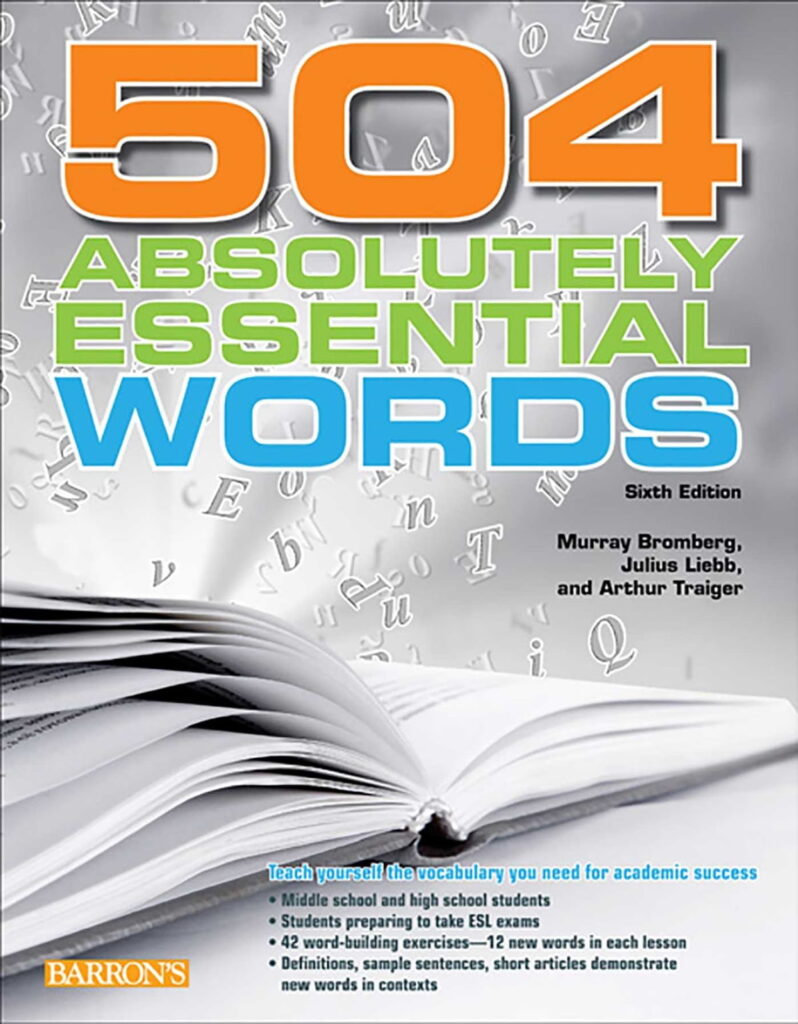
5. 504 Absolutely Essential Words by Murray Bromberg
Required Level: Beginner
Type: Vocabulary builder
Best: For beginners
Advantages
- Easy to progress quickly.
- Pronunciation, definition, and examples of each word.
- Vocabulary is practical.
- Fun and engaging exercises.
Disadvantages
- Though beginner-friendly, it isn’t suitable for absolute beginners.
- Too basic for native speakers.
Although not suitable for absolute beginners (basic knowledge of English is assumed in this book), Murray Bromberg’s 504 Absolutely Essential Words is nevertheless a good resource for improving elementary and intermediate-level English vocabulary and one that can be used in a number of ways:
For example, the book is set up to be useful to self-taught adults, high school students, and foreign-language English learners all at once. Interestingly, it can be used as a reference book (much like a dictionary) or a learning program and exercise book.
If you choose to follow it as a structured course, you’ll probably find the book t be an excellent way to build your vocabulary. The book will introduce 12 new words per week for 42 weeks. The way it works is simple: you’ll learn the pronunciation, definition, and examples of each word, followed by a passage in which all the words are used and various creative exercises (including a picture-based exercise and fill-in-the-blanks, among others).
All in all, we think this structured but creative approach makes the book both fun and accessible, and we recommend it for anybody looking to improve their vocabulary whose level of English is at (or around) A2 or B1.

6. Picture Dictionary by Oxford Dictionary
Required Level: Pre-intermediate
Type: Picture dictionary
Best: For visual learners
Advantages
- Published by Oxford University.
- Clear, colourful illustrations bring vocabulary to life.
- Conversational vocabulary.
Disadvantages
- No long texts for deeper context.
- No exercises or quizzes.
Probably the best-known book teaching vocabulary through visual illustrations, the Oxford Picture Dictionary is a favourite among teachers and students for its completeness on the one hand and for bringing words to life on the other.
Although filled with colourful pictures, the book nonetheless managed to go into a lot of detail. It’s divided into 12 ‘thematic units’, each corresponding to a broad subject (e.g. everyday language, people, housing, food and recreation, etc.). Each thematic unit is further divided into around a dozen or more subjects of roughly a page or two each.
The illustrations are clear and colourful, albeit rather dominating on the page.
We’d thoroughly recommend this book if you’re a visual learner. However, because of its sizeable vocabulary that’s useful for day-to-day situations and because of its engaging illustrations, we think Oxford Picture Dictionary is suitable for just about anybody at the pre-intermediate level or above who wants to improve their English vocabulary.

7. The Little Prince by Antoine de Saint-Exupéry
Required Level: Pre-intermediate
Type: Fictional novella
Best: Story or novel for learning English vocabulary.
Advantages
- Charming classic that’s interesting and easy to read.
- Stood the test of time.
Disadvantages
- Not a vocabulary builder, so words aren’t linked with definitions
A true classic, Antoine de Saint-Exupéry’s The Little Prince is not only a much-loved children’s story that’s stood the test of time but also one of the best-selling and most translated books ever to be published. Combined, these things make The Little Prince a fantastic way to learn language — especially for those who enjoy stories to begin with.
Originally published in English and French in 1943, The Little Prince has since been translated into over 250 languages and dialects and sold over 140 million copies around the globe. The fictional story follows a pilot who crash-lands in the Sahara Desert, only to meet a young boy who came to Earth from a faraway planet and calls himself “the little prince”. Whimsical and fairy-tale-like, the story provides both an interesting setting for children and a much deeper social commentary that adults of all ages can appreciate.
Although it’s difficult to compare The Little Prince to the other books on this list for the purposes of improving English vocabulary, we think it’s an excellent bet, especially if you’re inclined toward stories and learning vocabulary by reading larger texts.

8. 500 Really Useful English Phrases by Jenny Smith
Required Level: Pre-intermediate
Type: Vocabulary builder
Best: For everyday phrases and expressions.
Advantages
- Very practical for everyday use.
- Good to use alongside a more comprehensive vocabulary builder.
Disadvantages
- No illustrations or visuals.
- No in-depth exercises.
If you’re at an intermediate level of learning English, you might have noticed that it’s easy to get ‘stuck’ there — no longer progressing as fast as you were as a beginner, yet struggling to break through to a more comfortable mastery of the language.
This is the problem that 500 Really Useful English Phrases aims to help readers to solve. By introducing new phrases and expressions (e.g. “throw caution to the wind” and “a close shave”) and using them in texts to provide context, the book avoids the vocabulary-first approach used by many other books on this list and instead tries to showcase the English language as native speakers naturally use it.
In the end, the result is a thorough overview of colloquial phraseology in English at the pre-intermediate to advanced level (although, in our opinion, the book lacks some of the more intensive vocabulary lists and exercises found in other books on this list). As a result, we think it’s an excellent choice if you’d like to learn everyday English phrases in particular but not if you’d like to improve your English vocabulary in general.

9. Business Vocabulary in Use by Bill Mascull
Required Level: Beginner
Type: Vocabulary builder
Best: For business English vocabulary
Advantages
- Lots of depth about business.
- Vocabulary is useful and relevant.
- Well-presented examples and explanations.
Disadvantages
- Exercises aren’t very long.
- Exercises aren’t very frequent.
- The ‘Elementary’ book can be too advanced for A1 learners.
Business English can be unusual and, at times, not very self-explanatory. For example, it’s easy to wonder at the subtle differences between “commerce”, “enterprise”, and “corporation”, or “to drop in” versus “to join in”. —
This is the kind of vocabulary and nuance you’ll learn in the Business Vocabulary in Use series, which is available for beginner, intermediate, and advanced learners. No matter your level, all three books use neat examples and structured explanations to bring across the important aspects of business communication in an effective and approachable way.
Each book is broken into a number of parts (e.g. “Numbers”, “Socializing”, “Telephoning”) and then further divided into several chapters — each ending with a series of exercises such as fill-in-the-blank and open-ended questions.
Because of the clarity and thoroughness of the books in the Business Vocabulary in Use series, we rate them hands-down as the best books for English business vocabulary, as they are more extensive than similar business English books we reviewed. And although we recommend having at least an A2 level of English for this series, these books will probably otherwise be useful to you regardless of your level of English.

10. How to Build a Better Vocabulary by Maxwell Nurnberg & Norris Rosenblum
Required Level: Upper-intermediate
Type: Non-fiction book
Best: Overview about words and their history
Advantages
- Words presented with their etymology, history, and semantics.
- Very broad approach.
- Good if you’re interested in language and words.
Disadvantages
- No pronunciation guides.
- Some references and words are outdated.
Rather than a vocabulary builder in the style of many of the others on this list, How to Build a Better Vocabulary by Maxwell Nurnberg and Morris Rosenblum is a book that tells the story of English words and, in doing so, introduces hundreds of interesting and unique new words.
Originally published in 1949, How to Build a Better Vocabulary can easily be a little old-fashioned in its layout and language. However, on closer inspection, we thought that book is still very much relevant to a 21st-century audience because it’s written in clear language and introduces vocabulary and the history of words in an orderly and easy-to-understand way.
All in all, we think this is an excellent book for you if you’re looking for an engaging read in the field of language, words, and etymology and would like to improve your vocabulary as you go. However, if building your vocabulary fast and effectively is your main aim, we think Word Power Made Easy or English Vocabulary in Use would be better alternatives.
What Are the Best Book to Improve Vocabulary?
To sum up, if we were to select just three books out of the 10 above as the best books of all to improve your English vocabulary, then they’d be the following:
- Word Power Made Easy: Best vocabulary builder in general.
- 1100 Words You Need to Know: Best for following a daily program.
- English Vocabulary in Use: Best if you’re looking for depth and explanation.
If you’re a beginner in English, take a look at our picks for the best English vocabulary books for beginners to see our specific recommendations instead. If you’re looking for the best grammar books, see our ranking here.
Tips to Improve Your Vocabulary
When it comes to books to learn English vocabulary, it’s important to stress that no matter which book you choose, alone, it’s probably not necessarily going to imbue you with the word mastery you may be looking for.
Instead, vocabulary books should be considered tools; tools which, with the right practice and motivation, will help you build your vocabulary and improve your English communication skills in a slow but sustainable way.
There’s no doubt that learning vocabulary in any language can be tricky, not least of all in English. Trickier still is putting the vocabulary you learn to practice. To maximise your results, we recommend combining the reading of the books on this list with the following in general:
- Read English books: Not only the books on this list but English books in general. The more you read, the larger your vocabulary will become. It’s as simple as that.
- Speak English: Speak it as often as you possibly can. Any spoken exposure to the language will naturally build your vocabulary quicker than you might imagine. If you can speak English with native speakers, all the better!
- Make a daily effort: We recommend making English a part of your life, which means training it daily. Try to read a few pages of an English book every morning or complete a few exercises during your lunch break. As with any skill, learning English for just 30 minutes once a day is far more effective (and far easier!) than slogging along for four hours once a week.
And most importantly: keep motivated, and keep practising. With patience and the right habits, you might just grow a far bigger vocabulary than you can imagine!



